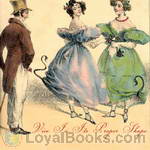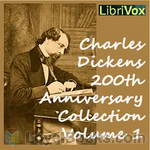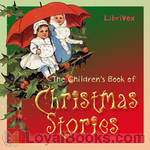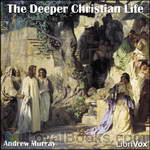|
Books Should Be Free Loyal Books Free Public Domain Audiobooks & eBook Downloads |
|
|
Books Should Be Free Loyal Books Free Public Domain Audiobooks & eBook Downloads |
|
Top Authors |
|---|
|
Book type:
Sort by:
|
By: Friedrich Nietzsche | |
|---|---|
 Ecce Homo
Ecce Homo
The philosopher Friedrich Nietzsche’s autobiography, Ecce Homo, was the last prose work that he wrote before his illness in 1889. Coming at the end of an extraordinarily productive year in which he had produced The Twilight of the Idols and The Antichrist, Nietzsche shuns any pretense at modesty with chapter titles include “Why I am so Wise”, “Why I am so Clever” and “Why I Write Such Excellent Books”. His translator Anthony M. Ludovici states, Ecce Homo “is not only a coping-stone... | |
By: Various | |
|---|---|
 Cocoa Break Collection
Cocoa Break Collection
Following in the vein of my Coffee-Break collections, this is a collection of short (all under 15 minutes) stories for kids. Focus is on fables and fairy tales published before 1923. | |
By: Unknown | |
|---|---|
 Vice in its Proper Shape
Vice in its Proper Shape
Cautionary tales of the transmigration of the souls of naughty boys and girls, as elucidated by the mysterious Bramin, Mr Wiseman: “Having been gifted with the faculty of distinguishing those animals which are now animated by the souls of such human beings as formerly degraded themselves to a level with the unthinking brutes, I have taken the pains to provide a collection of beasts, birds, &c. most of which are inhabited by the souls of some naughty masters or misses, who died in the neighbourhood.” (David Barnes, quoting the Introduction) | |
 A Selection of Australian Poetry and Prose
A Selection of Australian Poetry and Prose
A collection of Australian writing from the public domain. | |
By: Charles Dickens (1812-1870) | |
|---|---|
 Charles Dickens 200th Anniversary Collection Vol. 1
Charles Dickens 200th Anniversary Collection Vol. 1
The Charles Dickens 200th Anniversary Collection comprises short works - fiction, essays, poetry, letters, magazine articles and speeches - and each volume will be a pot pourri of all genres and periods of his writing. This first volume is released on Dickens' 200th birthday, February 7th 2012. Further volumes will follow during the anniversary year.Volume 1 includes short stories including, amongst others, The Holly Tree, the first part of Holiday Romance and three pieces from Mugby Junction.Some... | |
By: Max Heindel (1865-1918) | |
|---|---|
 The Rosicrucian Mysteries
The Rosicrucian Mysteries
A primer for those interested in the basic philosophy, beliefs & secrets of the Rosicrucians. | |
By: Unknown | |
|---|---|
 Lords of the Housetops: Thirteen Cat Tales
Lords of the Housetops: Thirteen Cat Tales
The Lords of the Housetops reveals the cat through the creative lenses of 13 authors. Consequently, this carefully chosen collection of stories is as complex, charismatic and clever as a cat. | |
By: Asa Don Dickinson (1876-1960) | |
|---|---|
 The Children's Book of Christmas Stories
The Children's Book of Christmas Stories
Many librarians have felt the need and expressed the desire for a select collection of children's Christmas stories in one volume. This book claims to be just that and nothing more. Each of the stories has already won the approval of thousands of children, and each is fraught with the true Christmas spirit. It is hoped that the collection will prove equally acceptable to parents, teachers, and librarians. | |
By: Eleanor H. Porter (1868-1920) | |
|---|---|
 The Road to Understanding
The Road to Understanding
"If Burke Denby had not been given all the frosted cakes and toy shotguns he wanted at the age of ten, it might not have been so difficult to convince him at the age of twenty that he did not want to marry Helen Barnet.""Of course the inevitable happened. However near two roads may be at the start, if they diverge ever so slightly and keep straight ahead, there is bound to be in time all the world between them. In the case of Burke and Helen, their roads never started together at all: they merely crossed; and at the crossing came the wedding... | |
By: Various | |
|---|---|
 First Chapter Collection 001
First Chapter Collection 001
Are you wishing sometimes that you had a good book which you don't know, that you might just read and enjoy? The goal of this collection is to introduce you to as many books as possible. Some are well known, some are not. | |
By: Unknown | |
|---|---|
 Oscar Wilde: Art and Morality. A Defence of The Picture of Dorian Gray
Oscar Wilde: Art and Morality. A Defence of The Picture of Dorian Gray
“Who can help laughing when an ordinary journalist seriously proposes to limit the subject-matter at the disposal of the artist?” “We are dominated by journalism…. Journalism governs for ever and ever.” One of the nastiest of the British tabloids was founded a year too late to join in the moral panic generated to accompany Oscar Wilde’s court appearances in 1895. Yet there was no shortage of hypocritical journalists posing as moral arbiters to the nation, then as now. This compendium... | |
By: Andrew Murray (1828-1917) | |
|---|---|
 The Deeper Christian Life
The Deeper Christian Life
If you were put on trial for being a Christian, would you be convicted? Christians have asked themselves this question, or ones like it, for millennia. In his book, The Deeper Christian Life, Andrew Murray helps us come to grips with those nagging insecurities in our Christian walk. A shallow relationship with God leads us down a road of doubt and insecurities. Can I be forgiven? How can I forgive? Murray tells us that we can go deeper in our relationship with God, and with that deeper relationship comes growing confidence and joy in the gospel. That joy springs from the knowledge of God's grace in forgiving us, and enables us to extend that grace to others in our lives. | |
By: Michael Knerr (?-1999) | |
|---|---|
 Sex Life of the Gods
Sex Life of the Gods
Beth Danson was about twenty-five and, besides her deep auburn-brown hair and lovely face, she boasted an equally attractive body. He found himself captivated by the warm thrust of her breasts beneath the silk blouse. The clear milk of her flesh, at the “V” of her throat excited him in a strange way. When he thought of her as his wife, it was frightening. It was as though someone had tossed him a woman and expected him to just fall into the routine of marriage. It wouldn’t be hard to come to love this woman, but it would take awhile... | |
By: Hamilton Wright Mabie (1846-1916) | |
|---|---|
 Fairy Tales Every Child Should Know
Fairy Tales Every Child Should Know
This is a collection of well known fairy tales by various authors, including the Brothers Grimm, Charles Perrault and many others. | |
By: Richard Harding Davis (1864-1916) | |
|---|---|
 The Amateur
The Amateur
On the steamer on his way to London, Austin Ford meets a young woman, who is going to London to find her missing husband. Being a specialist in finding people, Mr. Ford agrees to help her in her quest. However, something appears to be not quite right about the lady and her story... | |
By: Ann Radcliffe (1764-1823) | |
|---|---|
 The Italian
The Italian
The love story between a nobleman and a beautiful lady whom he meets in church leads both of them to unexpected places, as many people would not put up with their love. This novel is considered to be one of the best Gothic novels ever written, by one of the first (and best) writers of the genre. How does an “indecent” love story become a Gothic tale? What is the outcome of this love story? If you want to know, read this book. | |
By: Unknown | |
|---|---|
 The Lock and Key Library
The Lock and Key Library
A collection of classic mystery and detective stories, collected and edited by Julian Hawthorne. Note: the second chapter of Dickens’ The Haunted House is not included in this edition. | |
By: Various | |
|---|---|
 PD Goth
PD Goth
A collection of spooky stories hand picked from a variety of sources. | |
By: J. M. Barrie (1860-1937) | |
|---|---|
 The Story of Peter Pan
The Story of Peter Pan
THE STORY OF PETER PAN RETOLD FROM THE FAIRY PLAY BY SIR J.M. BARRIE BY DANIEL O'CONNOR. Basically, Daniel O'Connor took the story from the original play, with the approval of Barrie, and shortened it into a book with music and beautiful illustrations. This shorter book was published before Barrie wrote the longer novel using the same plot and characters. | |
By: H. Beam Piper (1904-1964) | |
|---|---|
 A Slave is A Slave
A Slave is A Slave
The Galactic Empire is slowly 'welcoming' into the family of civilized worlds those systems so far off in the backwater of the galaxy that they have been overlooked and ignored for the past 500 years or so. This is purely routine work because every planet offered the chance has eagerly accepted the invitation. Mainly because the enlightened Empire lets the planetary government continue to rule and do whatever it wants...with a few minor restrictions of course; and because the they are shown what happens to planets who decide not to accept the invitation... | |
By: John R. Musick (1849-1901) | |
|---|---|
 The Witch of Salem
The Witch of Salem
A Historical Novel about the Salem Witch Trials. A fantastic illustrated historical novel by the prolific American author John R. Musick From the author’s preface: The "Witch of Salem" is designed to cover twenty years in the history of the United States, or from the year 1680 to 1700, including all the principal features of this period. Charles Stevens of Salem, with Cora Waters, the daughter of an indented slave, whose father was captured at the time of the overthrow of the Duke of Monmouth, are the principal characters... | |
By: Herbert J. Hall (1870-1923) | |
|---|---|
 The Untroubled Mind
The Untroubled Mind
A very wise physician has said that “every illness has two parts—what it is, and what the patient thinks about it.” What the patient thinks about it is often more important and more troublesome than the real disease. What the patient thinks of life, what life means to him is also of great importance and may be the bar that shuts out all real health and happiness. The following pages are devoted to certain ideals of life which I would like to give to my patients, the long-time patients who have especially fallen to my lot. | |
By: George Alfred Henty (1832-1902) | |
|---|---|
 Beric the Briton - A Story of the Roman Invasion
Beric the Briton - A Story of the Roman Invasion
My series of stories dealing with the wars of England would be altogether incomplete did it not include the period when the Romans were the masters of the country. The valour with which the natives of this island defended themselves was acknowledged by the Roman historians, and it was only the superior discipline of the invaders that enabled them finally to triumph over the bravery and the superior physical strength of the Britons. The Roman conquest for the time was undoubtedly of immense advantage to the people -- who had previously wasted their energies in perpetual tribal wars -- as it introduced among them the civilization of Rome... | |
By: Harry Harrison (1925 -) | |
|---|---|
 The K-Factor
The K-Factor
The human race has reached the stars, colonized many planets and done amazing things in all areas of scientific progress. But humans are still humans and remain both honorable and not so honorable; some with high ideals and others with very low ones indeed. So why hasn't war occurred in several centuries among the hundreds of planets? Has man really changed? Not on your life it hasn't! Read how science has given man peace but at what cost? | |
By: Anonymous | |
|---|---|
 That Mother-in-Law of Mine
That Mother-in-Law of Mine
Here we were, only a month married, and spending our honeymoon at a most charming summer resort, where there was no excuse for getting out of patience. Everything was beautiful and attractive: Little hotel, strange to say, quite delightful; no fault to find with surroundings and accommodations; my darling Bessie, as sweet as an angel and determined to be happy and to make me happy; everything, in short, calculated to give us a long summer of delight. That is, if Bessie had only been an orphan. But there was her mother, who had joined us on our summer trip, after the first two weeks of unalloyed happiness, and threatened to accompany us through life. (excerpt from chapter 1) | |
By: Arthur Machen (1863-1947) | |
|---|---|
 The Great God Pan
The Great God Pan
"The Great God Pan" is a novella written by Arthur Machen. A version of the story was published in the magazine Whirlwind in 1890, and Machen revised and extended it for its book publication (together with another story, "The Inmost Light") in 1894. On publication it was widely denounced by the press as degenerate and horrific because of its decadent style and sexual content, although it has since garnered a reputation as a classic of horror. Machen’s story was only one of many at the time to focus on Pan as a useful symbol for the power of nature and paganism... | |
By: Margaret Ann Hubbard | |
|---|---|
 Sister Simon's Murder Case
Sister Simon's Murder Case
Set in the picturesque wilds of a Midwestern resort town at the height of the tourist season, Sister Simon’s Murder case begins with the murder of a terrified elderly lady, Dannie Grear. But what was she so afraid of? And who is the killer who keeps attacking anyone he thinks may know too much?The opinionated local police ran into one obstacle after another in their attempts to find the elusive killer. But the menace was effectively removed by the independent investigation of Sister Simon, a very proper nun who had learned from her policeman father never to take anything for granted in a murder case and how to fire a gun with deadly accuracy. | |
By: Unknown | |
|---|---|
 Rock A Bye Library: A Book of Fables
Rock A Bye Library: A Book of Fables
A book of short fables with morals. | |
By: John Buchan (1875-1940) | |
|---|---|
 Huntingtower
Huntingtower
Dickson McCunn, a respectable, newly retired grocer, plans a walking holiday in the hills of south-west Scotland. He meets a young English poet and finds himself in the thick of a plot involving the kidnapping of a Russian princess, who is held prisoner in the rambling mansion, Huntingtower. This modern fairy-tale is also a gripping adventure story. | |
By: Unknown | |
|---|---|
 British & American Periodical Articles 1852-1905
British & American Periodical Articles 1852-1905
A dozen assorted articles from British and American periodicals, including The Atlantic Monthly, Punch, The Chicago Record-Herald, Chambers’s Edinburgh Journal, Lippincott’s Magazine of Popular Literature and Science, The Library, St. Nicholas, American Missionary, The Great Events by Famous Historians, and The Continental Monthly. | |
By: Wilkie Collins (1824-1889) | |
|---|---|
 The Dead Secret
The Dead Secret
"Everything in life has a price. May be, telling a Secret has the highest. However, not telling may be worse. What will Sarah choose? will she tell the Secret which destroyed her life?" | |
By: F. Scott Fitzgerald (1896-1940) | |
|---|---|
 Flappers and Philosophers
Flappers and Philosophers
Flappers and Philosophers was the first collection of short stories written by F. Scott Fitzgerald, published in 1920. It includes eight stories: * "The Offshore Pirate"* "The Ice Palace"* "Head and Shoulders"* "The Cut-Glass Bowl"* "Bernice Bobs Her Hair"* "Benediction"* "Dalyrimple Goes Wrong"* "The Four Fists" (Introduction by Wikipedia) | |